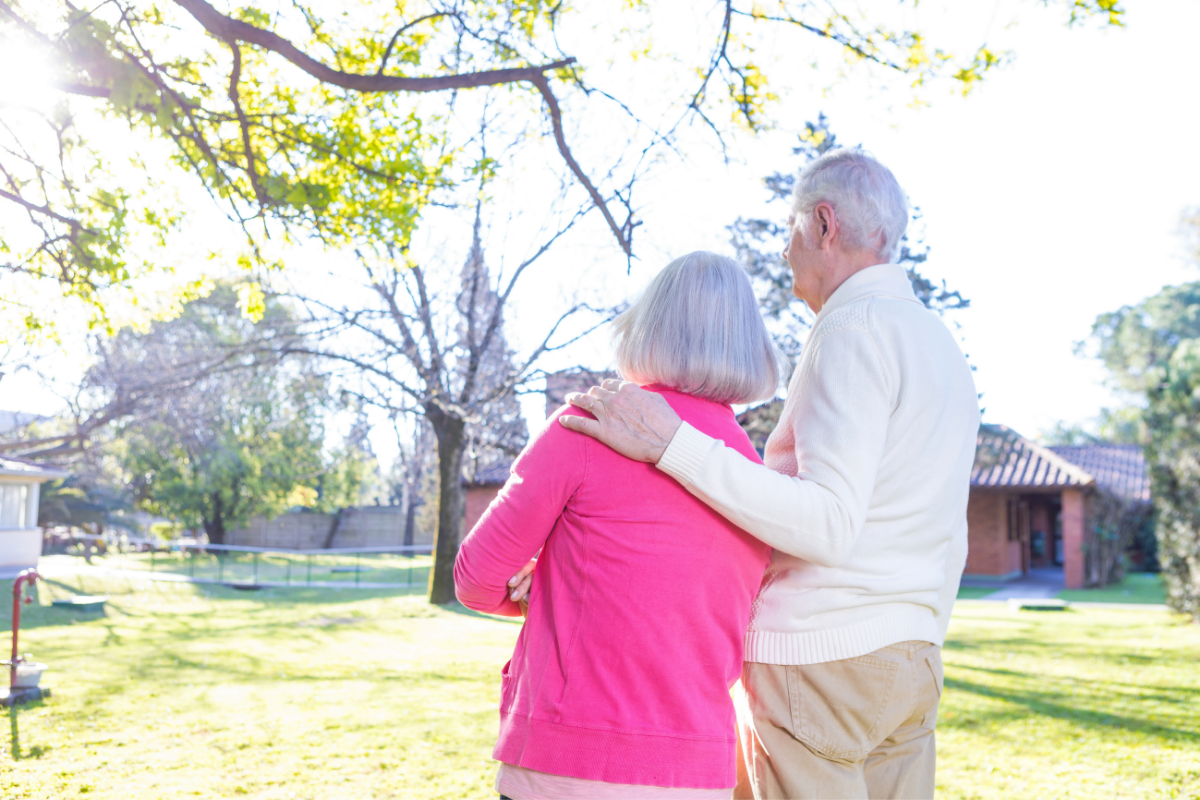My grandmother always told me to go outside and get some sunshine. It’s good for the soul, she would say. I never thought about it much as a child, but it turns out grandma was right!
Studies show that increased exposure to sunlight does indeed enhance your mood. I have to say from personal experience, and I’m happier when I’m outside on a bright, beautiful sunny day than when I experience a gray, gloomy day.

Sunlight and Senior Living
Of course, it’s important to point out that there is danger in getting too much sun exposure – especially for seniors. Research shows that too much sun can be harmful to your health. Excessive exposure to ultraviolet rays from the sun is a major risk factor for most skin cancers.
Plan ahead when you’re going to be outside for an extended period and make sure you apply sunscreen before you go. In particular, individuals with any of the following conditions should limit their exposure to sunlight:
- A known history of skin cancer
- Sun damage from long-term sun exposure
- A history of sunburns
- Skin changes that look suspicious for skin cancer
Sunlight in Moderation
Sunlight in moderation, however, provides numerous health benefits!
- Sunlight produces vitamin D that protects against depression, insomnia, and an overactive immune system.
- Seniors are likely to suffer from a vitamin D deficiency due to the natural aging process and changes in lifestyle.
- Recent studies have shown that in older adults, vitamin D bolsters skeletal health and reduces the risk of hip fractures, colorectal cancer, and vascular events such as strokes or heart attacks.
- A high level of vitamin D in the bloodstream can also boost memory and protect against dementia.

Sunlight, Senior Living and Sleep
The sun also plays an influential role in your sleep cycle and disrupted sleep is a common complaint among the elderly.
When the body senses natural sunlight, it halts the production of melatonin, the hormone responsible for sleep. For this reason, seniors who enjoy the sunshine in the morning report feeling more alert during the day and have less trouble falling asleep at night.
Light is the most potent agent to synchronize your internal body clock – regulating circadian rhythms that, in turn, also control energy balance.
Not getting sufficient light between 8:00 a.m. and 12:00 noon can de-synchronize your bodies internal clock, altering the metabolism and can lead to weight gain.
The good news for Arizonans, of course, is that we have plenty of days of sun year-round! There is so much sun in Arizona, in fact, that the state opted out of daylight-saving time. Clocks in Arizona remain untouched every year as daylight saving time officially starts. Most of Arizona has continued to be Mountain Standard Time (MST) state since 1968.
In summary, avoid long hours in the sun at one time. Rather, try to get at least some exposure to sunshine several days a week. Now grab a friend or family member, go outside, and enjoy a nice leisurely walk!
Contact Options For Senior Living
Here at Options For Senior Living, we’re here to help you find the best long-term care community for your aging parent or spouse. Contact us below, we’d love to help you.


